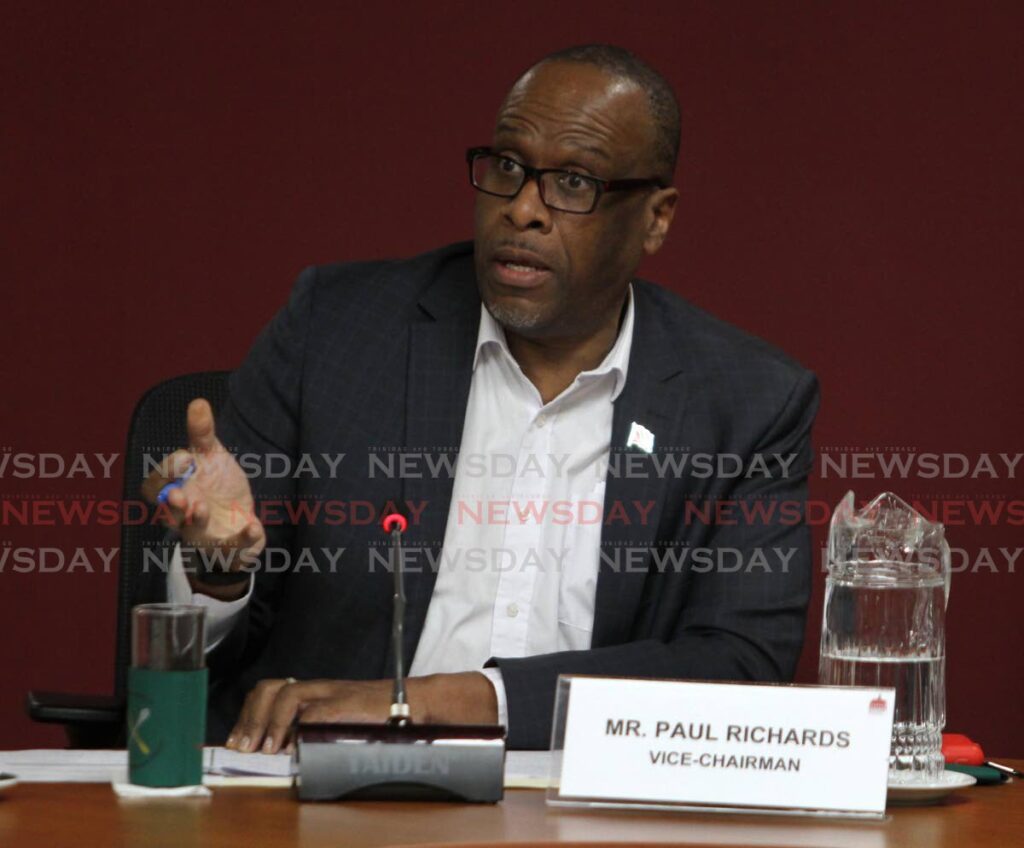Minister: Expelled students may not re-enter public schools

EDUCATION Minister Dr Nyan Gadsby-Dolly says students expelled from the public school system cannot be subsequently re-admitted.
Newsday approached Gadsby-Dolly for clarity after it was revealed that a Siparia East student was expelled after a video of her arguing with a teacher went viral.
The 16-year-old girl was seen in a video verbally abusing a teacher in a classroom while other children laughed and jeered at the teacher.
Before expulsion, the student had been suspended for her actions which included disruptive and unruly behaviour, cursing the teacher, threatening and using "aggressive, intimidating behaviour" towards the teacher and "gross disrespect towards authority."
Newsday had asked if, in general, a child could be admitted to another public secondary school after rehabilitation. The minister replied that it was not allowed.
She said, “Students are not readmitted to public schools after expulsion, but are still eligible to partake in all free training programmes offered by different arms of the Government...
“The issue of readmission would require a policy change which has not been considered at this time.”
She also pointed to the National School Discipline Matrix which is available on the ministry’s website, and said factors such as age, background, disciplinary history and other extenuating circumstances were considered before a decision was taken regarding expulsion.
The discipline matrix outlines a list of infractions and details their consequences as well as the process to be followed in disciplining errant students.
It acknowledges the use of support measures as an alternative to students being suspended or expelled and adds that such methods had proven to help create positive school climates.
The matrix contains a discipline procedures flowchart which helps teachers and administrators to determine the level of infraction when student misbehaviour was reported or observed.
The flowchart recommends a report is to be made to the principal or dean and the first-offence consequences initiated. It says suspension is not recommended at this stage and instead emphasis should be placed on restorative strategies with the Student Support Services Division of the Education Ministry, the Ministry of Social Development and Family Services (MSDFS) and law enforcement all getting involved if necessary.
If there is a long lapse before the student commits another infraction, the process begins all over again.
If, however, persistent or continuous infractions are committed, second and third offence consequences are initiated. Suspension and possible expulsion can also be considered if the child’s behaviour does not improve.

The flowchart says, at this point, the student is also referred to the police, the Children’s Authority, Military-led Academic Training Programme (Milat) and the MSDFS.
The matrix also categorises infractions as minor, major, and severe, with only repeated severe infractions warranting expulsion.
Gadsby-Dolly had previously told Newsday that expelling a student was a last resort, and occurs only after all efforts to rehabilitate the child had failed.
She also noted the move might be necessary to ensure other students enjoyed their right to an education without being put at risk.
"While every effort is made to support behavioural transformation of students within the school system, there comes a point where allowing the student to continue in the school environment is no longer in the best interest of the other students and teachers, who have to contend with the unpleasant disruption of the learning environment."
This is the view also shared by Independent Senator Dr Paul Richards who, having earned his PhD in Educational Psychology, said expulsion was a last resort.
“People should not take the fact that she was expelled lightly. From what I've seen, it takes a lot for the Education Ministry to reach the point of expulsion.
"The system involves warning, suspension and intervention before you can get to expulsion.”
He added, “While we have to consider the welfare of the student, we also have to consider the welfare of the other students in the class and also the welfare of the teachers.
"The child's interests are important but that is not the only interest to be considered here. The other students in the class have a right to a non-disrupted education.”
Contacted for comment, former chairman of the Children’s Authority Hanif Benjamin suggested, however, that he did not necessarily believe in expulsion.
“Before we get to that option, we should definitely be able to definitively say that we have done everything humanly possible.
"I do not believe in giving up on children and I will never give up on a child, no matter how dysregulated the emotion or behaviour might be.
"To me, if we are giving up on a child, we are saying that we have failed that child, and I am not in the business of failing children. So for me, personally, I would never want to expel anyone.”
He backed his view by citing the lack of support in the education system for children who were behaviourally or emotionally dysregulated.
“We have (social workers and guidance counsellors) but you have one social worker, who is probably working three or four schools, spanning thousands of students and a guidance counsellor who is spanning thousands of students as well.
"We need dedicated social workers in a school, at least two probably, and one guidance counsellor, depending on the size of the school.
"Once we are able to identify the challenges early, were able to mitigate and put circumstances in place to help that child deal with whatever the challenges that that child might be dealing with.”
Benjamin said another major challenge facing the student support system is timeliness.
“People who are in need of assessment take months, sometimes even years, before the assessment can be completed. Sometimes you need an assessment (to be allowed) additional time for an exam.
"Students write the exam and move on into other schools and still have not received the assessment or a diagnosis or medication. And if you are in fact on the receiving end of an appointment, or reappointment, it can take months, sometimes even years for follow-up and follow-through.
Benjamin said the Education Act needed to be revamped and a new approach to education should be adopted.
“We need to think outside the box and move away from the archaic educational laws and the way we see and operate with children. Adolescent development has moved on, and we can no longer treat children the same way we did years ago. Moreso, given the pandemic and what it did to our children.”
Benjamin suggested consideration be given to integrating the judiciary’s peer-resolution programme into the education system.
“Maybe we need to see how the peer-resolution programme can be infused into the disciplinary process in our school system whereby students can go before their peers and sanctions can be given such as community service and so on.”
Richards suggested that, contrary to belief, children who were expelled still had avenues to gain an education from the State.

“There are other programmes such as Servol, Milat, and Military Oriented Youth Programme of Apprenticeship and Re-orientation Training (MYPART) which can be employed in terms of continuing to ensure a child is given some sort of intervention.
"Milat and MYPART, in particular, are very good arms of the TT Defence force that have been doing great work with children and minors who have had juvenile delinquency issues and emotional behavioural issues.”
Benjamin, however, maintained his stance saying, “I do not believe there are bad children. I believe that there are children who are dealing with circumstances and require professionals to guide them through those circumstances, whatever it may be.”
He said, “Unless we have a system that can support children we should not be expelling anyone, anyone at all.”

Comments
"Minister: Expelled students may not re-enter public schools"